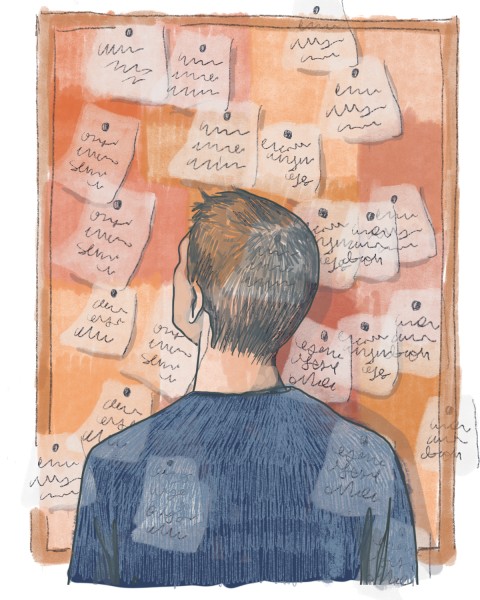Mourning prayer
The church’s old cork board reminded me that our heartbroken cries go directly to God.

(Illustration by Martha Park)
No one seems to want to talk about the pandemic. It’s like that period your parents spent living apart, which they never told you about and seldom spoke to each other about. It might have been an important and creative and learning season, but we’ve entered a conspiracy of silence and filed it under “too painful.”
One thing my congregation started doing during COVID was to livestream worship. At one point it seemed we were livestreaming everything, and no part of our lives or homes was sacred. But when things settled down and we stopped doing bread making or yoga classes from the kitchen or bedroom, one thing that survived was daily online morning prayer. Prior to the pandemic, a handful of people gathered in the sanctuary. Now those people are joined by about 100 others online, and more watch later in the day.
One element that draws a large response each morning is the opportunity to post a petition in the comments section, assured that the person assisting at the service will read it out. Then the person leading offers extempore prayers inspired by the set psalms and readings, recalling those going through a relationship breakdown at work or at home when the passage is about Saul and David, or about the feeling of being the one not chosen when Acts tells us that Matthias made the cut while Justus missed out.




